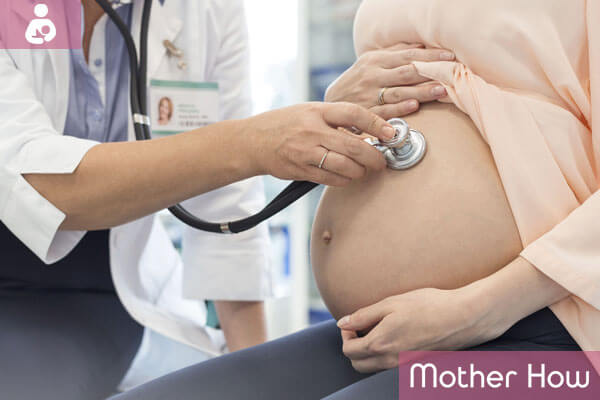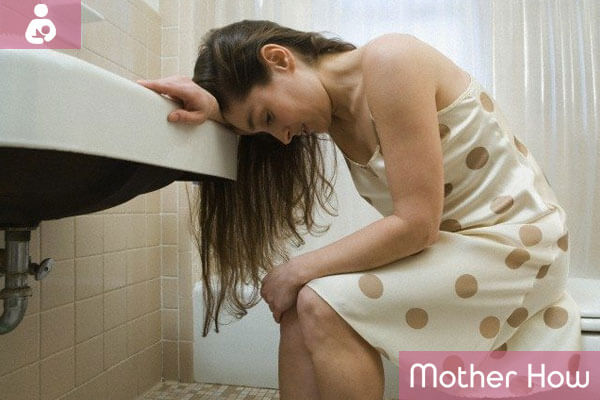Pregnancy is a very important period in the life of any woman. When a woman finds out that she is going to have a baby, she starts to experience a lot of positive emotions. However, she may not have a clue of what to expect during the whole period of pregnancy. The first ultrasound when a woman can see her baby, baby’s first stirring are the happiest moments. But, unfortunately, many women have to face unpleasant surprises during those 40 weeks. One of these surprises is pregnancy constipation.
The Symptoms of Constipation During Pregnancy
Each person has an individual frequency of bowel movements. Some do the “number 2” 2-3 times a day, and others can do it every next day or twice a week only. This is normal. Constipation affects many people, but prospective mothers are much more likely to experience this problem.
The main symptoms of constipation during pregnancy:
- The reduction in frequency of bowel movements
- A small amount of stool
- Dryness and hardness of stool
- The presence of a sense of incomplete emptying of the bowel after the defecation
Causes of Constipation During Pregnancy
The expectant women have different reasons for constipation. One of them is the increasing level of progesterone in the body. This hormone relaxes the intestinal muscles (impaired peristalsis, hypotension occurs).

The cause of constipation during early pregnancy may be iron and calcium. These useful microelements are basic for the mother-to-be and the fetus. Sometimes doctors even intentionally prescribe drugs containing iron and calcium.
Pregnant women don’t have an active lifestyle. Some women with the threat of miscarriage comply with bed rest. Such physical inactivity can cause constipation.
The prospective mother must monitor her diet during pregnancy. Due to the lack of liquid, defecation may be slow and difficult.
Constipation during pregnancy may also occur due to the diseases of the anal region. For example, anal fissures or hemorrhoids may be the cause of this unpleasant phenomenon.
Pregnancy can rarely go without stress. In fact – pregnancy is stressful. And stress is a number one contributor to “number two” problems. Negative emotional experience impacts the frequency of bowel movements.
Why is Constipation During Pregnancy So Dangerous?
Women who had never gone through difficult emptying may encounter this during childbearing at an early period. Many of them experience constipation during pregnancy in the later stages. Constipation for the prospective mother and her unborn child is of particular concern.
Because of difficulties with the emptying, harmful substances that are formed by the decay of food are delayed in a woman’s body. Being in the intestine they are absorbed into the blood through its wall. This may adversely affect the mother and fetus.
Constipation can cause a lot of uncomfortable feelings. A pregnant woman may feel heaviness in the abdomen and pain. All this can cause unwanted feelings and frustration.
What to Eat During Pregnancy
Not every woman knows what to do with constipation during pregnancy. Food plays a huge role in the treatment. A pregnant woman should include in her diet food that is composed of substances that help with defecation. You should also be aware of the food, the use of which may cause constipation.
Products that help with defecation:
- Raw vegetables and fruits
- Black bread
- Bread containing bran in considerable quantity
- Dried fruit (especially prunes)
- Buckwheat, oat, barley grits
- Meat with a large number of connective tissue
Pregnant women who complain of constipation and bloating, should limit the intake or eliminate from their diets food that has dietary fibers.
The meals with spinach, sorrel, cabbage, beans, which cause flatulence should be excluded.
Some of the meals in a shabby (especially semolina and rice porridge), and substances of a viscous consistency should also be excluded from your diet.
Some prospective mothers don’t know whether constipation during pregnancy can occur from cocoa and strong black tea and drink these beverages.
A pregnant woman should drink 1.5-2 liters a day. It can be plain water, juices, dairy products. It should be kept in mind that such an amount of liquid can be used in the case when there are no contraindications: heart disease or edema.
How to Relief Constipation While Pregnant
It is known that taking the medicine for pregnant women is undesirable since it may adversely affect the fetus. Then how to treat constipation during pregnancy? Drugs should be prescribed only when a doctor can see serious evidence.

Using medicines is not safe during pregnancy. The drugs can cause miscarriage, disturbances in fetal development. If a mom wants a healthy child, she should not take the medication without a prescription.
Prevention of Constipation During Pregnancy
Pregnant women may not be faced with constipation if they follow some preventive measures.
First of all, a pregnant woman should pay attention to her diet. It is desirable that the liquid meal (such as soup) would be presented in the daily menu. Foods that can cause constipation should be excluded from the diet.
Particular attention should be paid to the drinking regime. Many women are afraid to drink plenty of liquid because of the possible appearance of edema. This is completely wrong. A pregnant woman should drink plenty of water. Salty food should also be deleted. It needs to let the water run because salt retains water.
To avoid severe constipation during pregnancy, a pregnant woman should move as much as she can. Modern moms lead a sedentary lifestyle. Someone is afraid to once again move, considering that the movement may harm the baby, and someone is more concerned with social networking.
Lack of physical activity stimulates the digestive slowdown.
In conclusion, it is worth noting that the most sensible option, through which a pregnant woman can avoid difficulty with defecation is prevention.
Do not be afraid of visiting a doctor. He can advise on good and safe remedies for constipation during pregnancy and prescribe medication, and explain how to take it if it is necessary.

Born in Belarus, 1985, a pedagogue and family psychologist, mother. Taking part in procedures of social adaptation of the foster children in new families. Since 2015 is a chief editor of the motherhow.com project, selecting the best and up-to-date material for those, who are planning, expecting, and already having babies.

